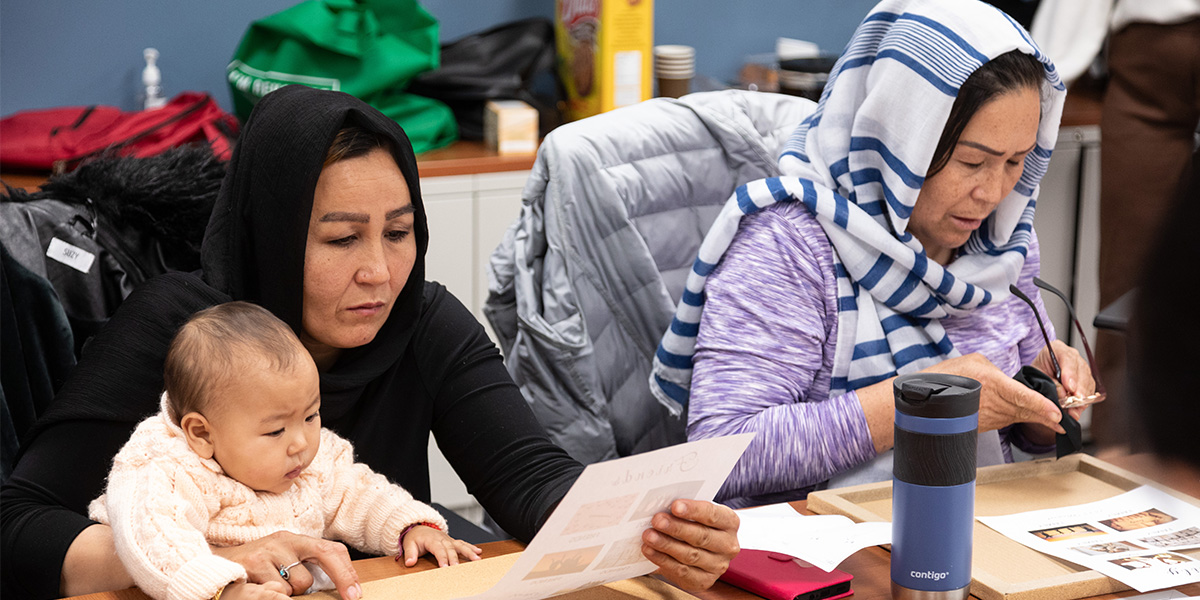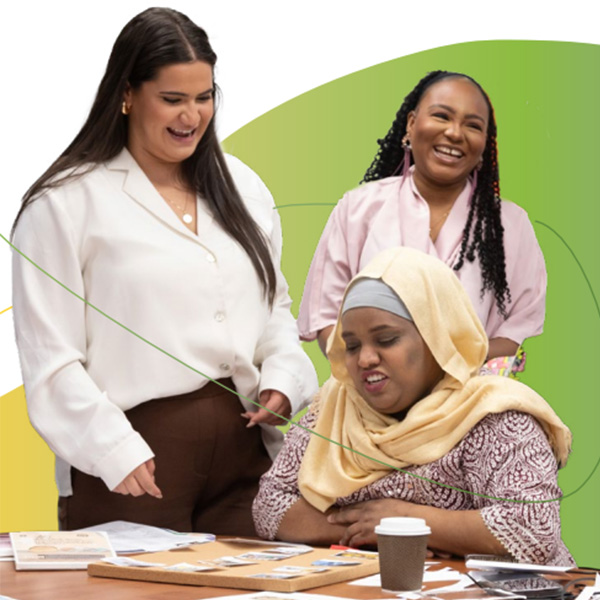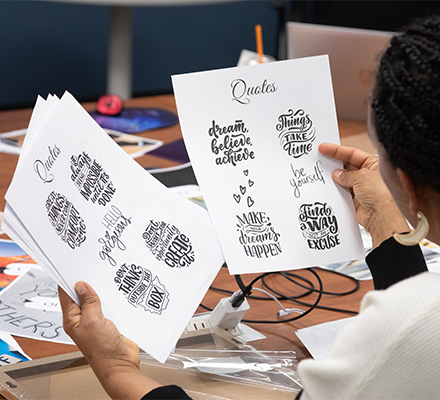The TIES that bind

Newcomer supports essential to wellness
Durgadevi (DD), her husband, and three-and-a-half-year-old daughter, immigrated to Calgary from India just over three months ago. DD’s husband works in the IT sector and was offered a once-in-a-lifetime job opportunity in Calgary, one that offered a promotion, and room for advancement. They made the difficult decision to leave their culture, their existing jobs, and their close-knit families, and move to a new city, one where they knew nobody.
Moving to a new country sounds exciting and adventurous, and for DD and her family, may present many opportunities. But for some, a big move may come unexpectedly, due to unrest, personal and economic safety, or religious or gender persecution. With migration comes a major transition, presenting unique experiences and challenges for newcomers navigating the cultural, social, and economic dynamics of a new country, all while trying to maintain ties to their ancestral culture, and rebuilding social and community networks.
According to one Canadian study examining common mental health issues in immigrants and refugees, resettlement usually brings about much hope and optimism, which has a positive effect on well-being. However, disillusionment, demoralization, and depression can happen because of migration-associated losses, or later, if initial hopes and expectations are not realized. Immigrants and their families may face enduring obstacles to advancement in their new home because of structural barriers and inequalities aggravated by the recent global pandemic, exclusionary policies, racism, and discrimination.
RonniIt's about building equitable opportunities for newcomers that allow them to be served in the ways that those of us that were born here in Canada have a better hope of accessing because we don't have to learn the system before we access the system.
Fortunately, Calgary has many resources, expertise, and supports to help newcomers not only settle into their new home but also to manage stress and mental health if necessary. One such organization is The Immigrant Education Society (TIES), a non-profit organization that just celebrated its 35th anniversary, providing innovative language education, customized employment training and placement, and integration services for newcomers. TIES has three physical locations in Calgary, as well as a renowned research arm that partners with local and international post-secondary institutions.
“Canada, especially Calgary, is very welcoming and here people from all cultures have been very warm,” says DD. “But it’s just the three of us and my daughter misses her grandmother very much, and my mother-in-law feels like we’ve left her behind. Sometimes it makes me feel sick.”
To help feel connected, DD joined a mom’s group for newcomers offered by TIES called Healthy Minds for Families. Healthy Minds is offered alongside a range of social inclusion, mental health, and crisis response initiatives offered by TIES, funded by The City of Calgary through Family and Community Support Services (FCSS), the Community Safety Investment Framework, and the Mental Health and Addictions Investment Framework. Healthy Minds provides multi-cultural mental health intervention, using extensive research to meet the psychological needs of newcomers and other vulnerable Calgarians.
“This program really helped build confidence within me, and it helps communicating with people from other cultures experiencing the same loneliness and challenges of being both a mom and a newcomer,” explains DD. “We are so close; they are like family. This program has the magic of just connecting people. I feel like I can do so much more for myself and for others. At first, I felt sick and now things are working, and even though I miss my family, things are so much better now.”
Ronni Abraham, Manager, Settlement and Mental Health for TIES says the organization views mental health, settlement, and language learning holistically. Most of their programs incorporate a language component as here in Calgary, speaking English is key to success.
“When you are a newcomer, everything is connected,” explains Ronni. “[Speaking English is] the key to your kids doing well in school, it's the key to finding employment, it's the key to feeling connected to your community, navigating your city, it's the key to everything. Almost all our employment programs have a language component built in as it’s a preventative piece that may keep people isolated in their homes and isolated in their language groups.”
DD feels fortunate to have learned English in school in India, but despite that and holding a Master of Business Administration, she feels one of her biggest barriers moving to Calgary was finding employment. “I now have two part time jobs with the encouragement and help from Healthy Minds, and was able to find childcare, where my daughter feels happy, so I feel happy,” she says.
With its holistic approach based on leading newcomer research, TIES, through Healthy Minds is always looking to create new services and programs, improve navigation, and provide referrals to partner newcomer organizations. It is their hope they can impact the stability of these services well into the future.
“While language is certainly a big piece, the idea of well-being, to have a good life, you need to have sufficient money, a place to live, to have your basic needs met, have friends, and to find a sense of welcome and a sense of community - newcomers aren’t different from average Calgarians in those ways,” says Ronni.
“We see amongst newcomers that there's a lack of knowledge about these concepts that in North America we just figure everyone knows well - everyone knows what depression is,” explains Ronni. “In Healthy Minds, our first pillar is information sharing, how people can contribute to their own mental well-being. Building mental health literacy in newcomers is important because when you don't have an actual concept for depression and your language doesn't include a word that would describe it, how do you tell someone that you can't get out of bed in the morning?”
Healthy Minds also offers psychoeducation to help newcomers with mental health literacy through online workshops, certified mental health counselling seven days a week in 11 primary languages for counselling and others through interpretation, and community initiatives and development activities for families and youth.
“Our entire program is built on access – there is no one ineligible for our services – so how do we help newcomers take that step through our door?” says Ronni. “We do this in several ways, but every time we hit a barrier, we try to find a way to overcome it, whether it's space or timing or a modality of counseling or approach. We have over 85 per cent of people who book appointments come and keep those appointments, which is a very high rate for free services.”
While DD has not used the counselling services offered through Healthy Minds, she feels her caring mom’s group energizes her and gives her a sense of purpose.
“I feel my family there with those girls and that is what we now need – apart from money, a job, apart from being in a healthy relationship with my husband,” says DD. “We need ‘me’ time and friends to chat with and to ask us if we are okay, and why were you not here today. We cry, we laugh, we giggle, we gossip. This is why I love it so much. It reassembles your brain wires, and I make sure I am there because of the positivity I can receive but also give. It’s a safe place. When we cry there together, we grow again.”

Did you know?
- TIES has provided service to over 300,000 newcomers in its 35-year history.
- Last year, Healthy Minds saw 768 Calgarians in over 3274 counselling appointments.
- Women are more likely to seek services than men.
- Only 40 per cent of newcomers ever seek formal help from newcomer serving organizations.

Categories: Mental health, Newcomers

